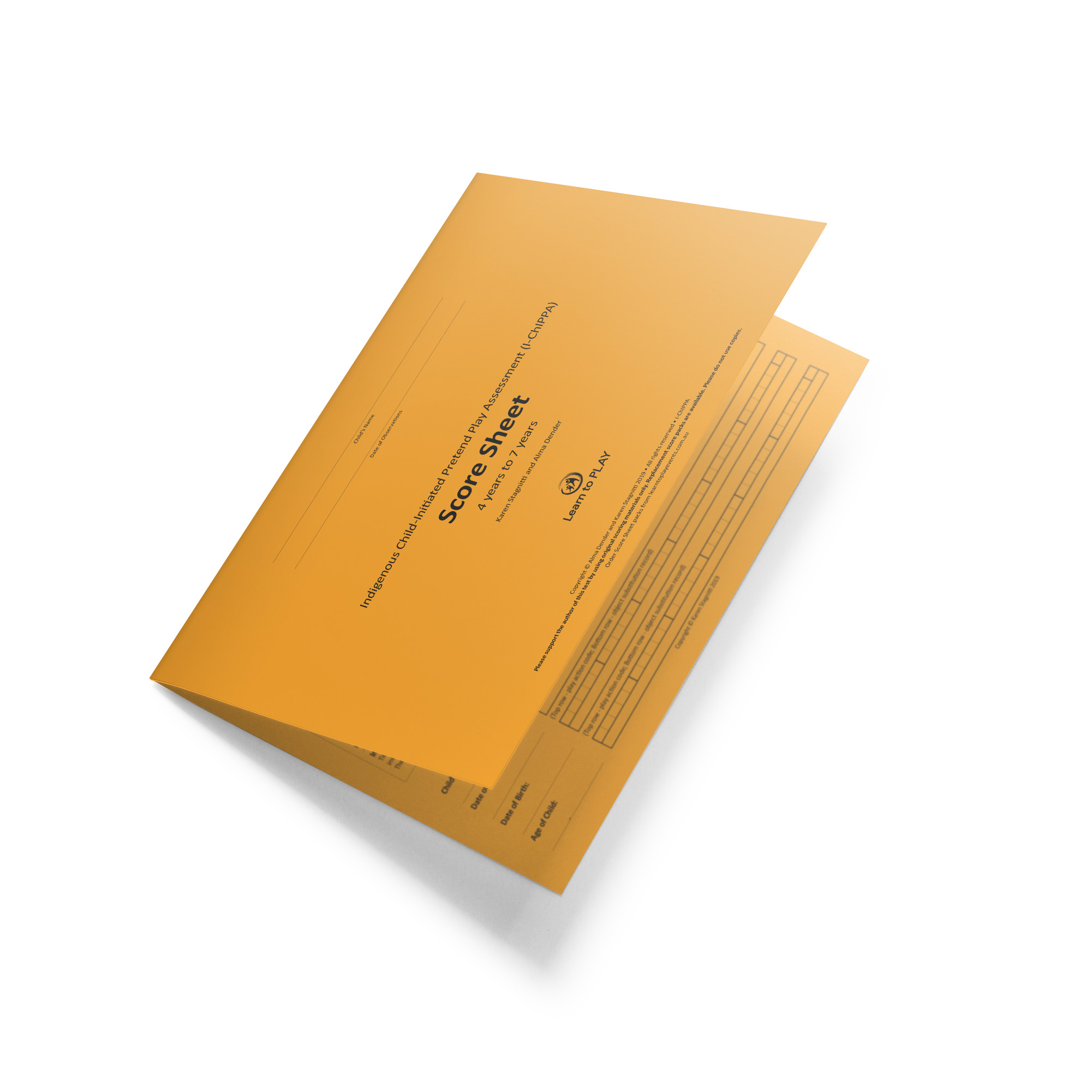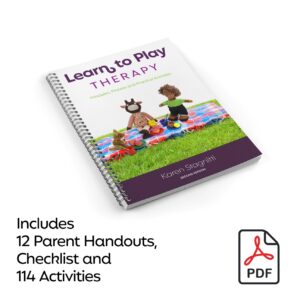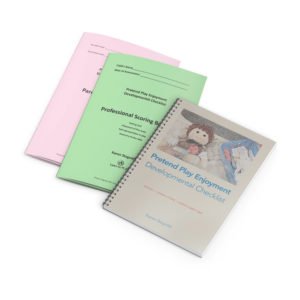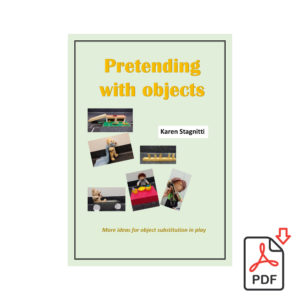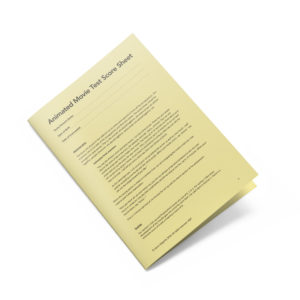Indigenous Child-Initiated Pretend Play Assessment (I-ChIPPA) SCORING BOOKLET: Pack of 10
$53.00 GST incl
10 x I-ChIPPA Scoring Booklets: 8 pages, saddle stitched; supplied in sets of 10 in envelope
This assessment is a culturally responsive version of the Child-Initiated Pretend Play Assessment for Australian Aboriginal children aged 4 to 7 years.
The I-ChIPPA manual and scoring booklets can be purchased in one of two ways:
- A supplement kit can be purchased if you already have the Child-Initiated Pretend Play Assessment. The common play materials between the I-ChIPPA and ChIPPA are: small truck, small trailer, fences and the symbolic play materials minus the cloth ‘things’. The supplement includes 6 figurines with differing skin tones, a small toy knife, 2 blue ‘things’, and 3 kangaroos. The purchaser still requires to collect toy native animals reflective of their area.
- A full I-ChIPPA includes all play materials (except the local animals to their area) needed to administer the assessment.
Please note that for both options, the purchase of toy animals reflecting the local fauna of the area is required for this assessment to be culturally relevant to area. More information on the background to this can be found in:
Dender, A., & Stagnitti, K. (2011). The development of the Indigenous Child Initiated Pretend Play Assessment: selection of play materials and administration. Australian Occupational Therapy Journal, 58, 34-42. https://doi.org/10.1111/j.1440-1630.2010.00905.x
Alma M. Dender & Karen Stagnitti (2015): Children’s play in the Australian Indigenous context: the need for a contemporary view, International Journal of Play, 4, 3-16. DOI: 10.1080/21594937.2014.977036. (2016) Corrigendum, International Journal of Play, 5:1, 116-116, DOI:10.1080/21594937.2015.1134046
Dender, A. & Stagnitti, K. (2017). Content and cultural validity in the development of the Indigenous Play Partner Scale. Australian Occupational Therapy Journal, 64, 283–293. https://onlinelibrary.wiley.com/doi/epdf/10.1111/1440-1630.12355
In Australia there are many First Nation countries and communities with Elders as custodians of knowledge and lore. In each community, what children play is influenced by their culture. The Indigenous Child-Initiated Pretend Play Assessment is based on the Child-Initiated Pretend Play Assessment with the I-ChIPPA being developed through consultation with communities and Elders in North West Australia. In this manual, Karen Stagnitti and Alma Dender encourage users of the I-ChIPPA to defer to the Elders in their community in how this assessment should be administered and what animals should be included. The I-ChIPPA is designed so that the administration and materials are responsive to the child’s culture. We are also aware that the name of this assessment may need to be changed for use within some communities.
The I-ChIPPA can be used when there is a concern about a child’s play ability. The I-ChIPPA is for children aged 4 to 7 years 11 months and can be administered with pairs of children or with single children. For pairs of children, the I-ChIPPA also includes the Play Partner Scale, developed by Alma Dender. The Play Partner Scale takes into account a play partner when playing. Using the I-ChIPPA, a child’s ability to sequence play actions, use symbols in play and self-initiate play are observed. There are no norm scores in the I-ChIPPA as comparing one child to another is not culturally responsive in many communities. Rather, a description of a child’s play is made, based on observations of a child’s ability to sequence play actions, use symbols in play, self-initiate play, play with a partner, and other observations noted in the Clinical Observations form. The information gained from the I-ChIPPA can be used to inform significant adults in a child’s life on how to support a child to develop their play to more complex levels.
About the Author

Karen Stagnitti PhD, BOccThy, GCHE. Karen is an occupational therapist by training who has a very strong interest in children’s play. Find out more about Karen

